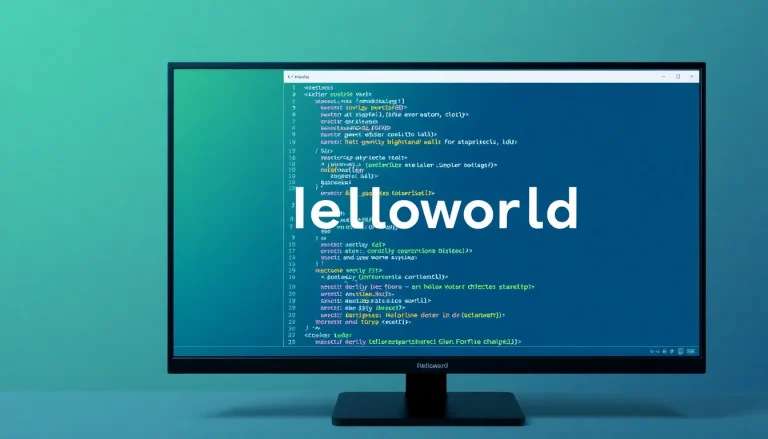The live casino sector within online gaming is one of the fastest-growing and most exciting segments of the iGaming industry. Players crave an immersive and interactive experience that mimics the excitement of a real-world casino. Live casino platforms, which allow players to interact with real dealers in real-time through video streaming technology, have become a crucial component of online gaming. However, building a reliable, scalable, and engaging real-time system for live casino platforms presents unique challenges. From ensuring low-latency video streaming to providing a seamless gaming experience, creating a real-time system for live casinos requires cutting-edge technology and careful system design.
In this blog post, we will delve into the essential elements involved in building real-time systems for live casino platforms. We will explore the technical considerations, challenges, and best practices involved in creating a robust and immersive live gaming experience.
What Makes Real-Time Systems Crucial for Live Casino Platforms?
Live casino platforms provide players with the thrill of interacting with live dealers through video streaming, and the ability to place bets and make decisions in real-time. To make this experience as immersive as possible, the platform must be capable of handling real-time interactions between the dealer, the player, and the system itself. In this environment, every action—whether a card is dealt, a wheel is spun, or a bet is placed—requires near-instant communication.
A robust real-time system is essential for ensuring that the following elements function seamlessly:
- Live video streaming: High-definition video with low latency, allowing players to watch dealers in real time.
- Player-dealer interaction: Real-time chat functionality and other interactive features to engage players.
- Real-time updates: Accurate tracking of bets, wins, and payouts in real-time.
- Scalability: The system should be able to handle thousands of concurrent players with minimal delay.
Key Considerations in Building Real-Time Systems for Live Casino Platforms
1. Low Latency Video Streaming
Video streaming is the backbone of live casino platforms, where players interact with human dealers in real-time. Achieving low latency (the time delay between the dealer’s action and the player’s response) is critical for providing a smooth, seamless gaming experience. Delays in video transmission can create frustration for players, affecting their engagement and satisfaction.
To maintain low latency, live casino platforms need to utilize high-performance video compression technologies and leverage Content Delivery Networks (CDNs). CDNs are distributed networks of servers that allow content to be delivered more quickly to players by caching video content closer to their geographical location.
Key Technologies for Low-Latency Video Streaming:
- H.264 and HEVC video codecs: These video compression algorithms help to balance high video quality with lower bandwidth usage, essential for streaming HD video in real-time.
- WebRTC (Web Real-Time Communication): WebRTC is a peer-to-peer protocol that supports low-latency streaming, ensuring quick data transfer between the server and the player’s device.
- CDNs (Content Delivery Networks): CDNs help minimize latency by distributing video content to servers located closer to players, improving video load times and minimizing buffering.
These technologies combined enable a high-quality, low-latency video streaming experience, which is vital to ensure that players feel like they are truly interacting with live dealers.
2. Scalable Infrastructure to Support Concurrent Users
As live casinos grow in popularity, operators need to ensure their systems can scale to accommodate large numbers of concurrent players without sacrificing performance. A scalable infrastructure is essential to maintain a smooth, uninterrupted experience as player traffic fluctuates.
To handle large volumes of traffic, the system must be built to handle:
- Multiple concurrent streams: Live casino platforms need to stream live video to thousands of players at once. This can place heavy demands on servers and networks.
- Real-time data processing: Player bets, game outcomes, and payouts need to be processed in real-time to ensure a smooth gaming experience. The system must be capable of handling this data without delays or crashes.
- Load balancing: Distributing network traffic evenly across multiple servers ensures that no single server becomes overwhelmed with traffic. Load balancing helps prevent performance bottlenecks during peak traffic periods.
Cloud-based infrastructure, often hosted on platforms like AWS or Google Cloud, offers scalability and flexibility, allowing operators to easily scale up or down depending on player demand.
3. Reliable Data Synchronization and Transaction Integrity
In a live casino, accurate data synchronization between the players, dealers, and platform is crucial. Players need to see their bets, wins, and actions reflected in real-time, and dealers must have an up-to-date view of the bets and results. Any delay in data synchronization can create confusion and undermine the integrity of the game.
In addition to ensuring that all actions are synchronized, the system must maintain transaction integrity. This includes ensuring that every bet placed is recorded correctly, and payouts are processed accurately. The system must also track player balances in real-time to prevent discrepancies or cheating.
Key Technologies for Data Synchronization:
- Real-time databases: NoSQL databases like MongoDB and Redis are commonly used to manage real-time data, as they can efficiently handle high-speed read and write operations.
- Event-driven architecture: In this architecture, events (such as a bet being placed) trigger immediate actions, ensuring that the system reacts quickly to changes in the game state.
- Blockchain: In some cases, especially for crypto-based casinos, blockchain can be used to ensure the integrity of transactions, providing transparent and immutable records of all actions.
The combination of real-time data processing and robust transaction management ensures a smooth, fair, and transparent gaming experience for all players.
4. Ensuring Robust Security and Fair Play
Security and fairness are paramount for live casino platforms. Players need to trust that their financial transactions are secure and that the games are fair. For a live casino, this means ensuring the integrity of both the video stream and the game itself.
Key Security Considerations:
- Encryption: SSL (Secure Sockets Layer) and TLS (Transport Layer Security) encryption protocols must be used to secure player data and financial transactions.
- Fraud detection: AI and machine learning can be used to detect suspicious activity, such as players attempting to cheat or engage in money laundering.
- Game fairness: To ensure fairness, live casino platforms use certified Random Number Generators (RNGs) for digital games and often offer transparency through provably fair algorithms for crypto casinos.
Fairness and security protocols help build player trust, ensuring they feel confident in the live casino experience.
Why Choose SDLCCorp for Your Live Casino Platform?
If you’re looking to build a robust, scalable, and engaging live casino platform, Crypto Casino Software Provider offers comprehensive solutions to meet your needs. SDLCCorp’s platform is designed with cutting-edge technologies that ensure low-latency streaming, secure payment systems, and a seamless player experience.
Why Choose SDLCCorp:
- High-Quality Video Streaming: SDLCCorp ensures smooth, low-latency video streaming to provide an immersive gaming experience for your players.
- Scalable Infrastructure: With cloud-based architecture and robust load balancing, SDLCCorp’s platform can handle thousands of concurrent users, ensuring optimal performance at all times.
- Real-Time Data Processing: SDLCCorp’s system ensures real-time synchronization and transaction integrity, providing players with an accurate and fair gaming experience.
- Comprehensive Security: With encryption, fraud detection, and provably fair systems, SDLCCorp prioritizes security and fairness to protect both operators and players.
Conclusion
Building a reliable, scalable, and immersive real-time system for live casino platforms requires a combination of advanced technologies and careful system design. By focusing on low-latency video streaming, robust infrastructure, real-time data synchronization, and strong security protocols, operators can create a seamless and engaging live casino experience that keeps players coming back for more.







